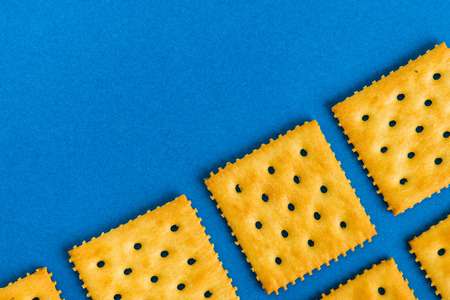Nutritional Demands During Pregnancy

In this article, you will find:
Weight gain; what to avoid
Nutritional Demands During Pregnancy
In active, athletic women, excess weight gain is rarely a problem. Guidelines for weight gain are about 3 to 5 pounds in the first trimester, then 1 pound per week thereafter after the first 3 months of pregnancy for a total of 25 to 35 pounds weight gain overall. Weight gains are adjusted slightly based on starting weight parameters: Underweight women can gain 30 to 40 pounds, normal weight women can gain 25 to 35 pounds, and overweight women can gain 15 to 25. Do not be concerned about this weight gain: It is necessary for your baby. It might sound like a lot because the baby weighs between 6 to 10 pounds, but the additional weight is essential for the health of your baby. This includes increased blood volume, amniotic fluid, the placenta (a bed of nutrition for the baby), and enlarged breasts. This weight is usually lost within the first few months after pregnancy, especially as you continue to exercise.During pregnancy, you should eat three meals a day with a few snacks to keep your blood sugars stable and accommodate for the limited room your stomach has to expand as your baby grows. Eating smaller, more frequent meals also helps manage nausea during the first trimester. You should not diet or limit carbohydrates or fats or be on any type of restrictive diet, unless recommended by your doctor. You need the calories and fat in a well-balanced diet to feed your growing baby.
The exception to nutritional foods that should not be eaten in pregnancy includes foods that can become easily colonized with listeria. This is a bacteria that can lead to gastrointestinal, intrauterine, and cervical infections either with or without fever, nausea, vomiting, and diarrhea. It can also cause meningitis. In pregnant women, it is particularly dangerous, as listeria can cause miscarriages and stillbirths. Foods at risk of contamination with listeria include soft cheeses (brie, feta, Mexican cheese), unpasteurized dairy products, poorly stored deli meats that have not been heated to steaming, raw poultry, raw fish, raw meats, and smoked fish. Although fish is beneficial to the baby's developing nervous system, fish with a high content of mercury should be avoided. These include swordfish, large tuna steaks (albacore and most canned tuna is fine twice a week), tilefish, shark, and mackerel. Oysters and raw shellfish should be avoided due to other risks of diseases, including hepatitis A.
Foods That Should Be Avoided in Pregnancy
- Soft cheesesbrie, camembert, feta, Mexican cheese, blue, or gorgonzola
- Hot dogs, deli meats, meat spreads that have not been heated to steaming
- Unpasteurized dairy products
- Raw meat and poultry
- Raw and smoked fish and shellfish
- Swordfish, tuna steaks, mackerel, shark, and tilefish
Proper nutrition can sometimes be a challenge. During the first trimester, when morning sickness or general nausea peaks due to the rapid hormone changes of pregnancy, it might be hard to eat a well-balanced diet. During this time, try to get enough calories and fluids and take your prenatal vitamin. If the prenatal vitamin is making you feel sick or constipated, ask your doctor for a different brand. Until then, take calcium tablets and a multivitamin along with an extra 400 mg folate. Vitamin-fortified cereals, food bars, or drinks can also provide extra nutrients (read the labels). You might have to stop exercising for a while if you are unable to eat enough calories. After the first trimester, this should improve and you should be able to tolerate more foods along with your prenatal vitamin.
If you have severe problems with morning sickness, or nausea and vomiting during the day and night there are many things you can do to try to ease and even prevent it. These include smelling or tasting a lemon, ginger, or lavender; snacking on crackers or cookies; eating a small meal every two hours; and sipping very cold lightly sweetened or carbonated beverages.
Because nausea and vomiting can often last all day and even at night, be prepared with scents, foods, and drinks that work for you. If you are vomiting, try to take in as much fluid as you can. Sports drinks are recommended throughout the day to replenish lost electrolytes.